Navneet:本文是《南县是六线城市(1)》的续文。撰写此文时,我去网上进一步了解了中国。让我在此文和大家一起分享。看了我前一篇博文后,程先生给我做出了一些纠正。关于高昂的学费,他说,“大多数人承担不起高昂学费。然而,事实是,三四千元虽然不 算小数目,但是由于实行计划生育,大多数家庭能承担起高昂续费,即便这意味着父母不得不努力工作。值得高兴的是中国有些地方的高中是免费的,且越来越多地 方的高中教育变得免费了。(可能不同的省实行不同的教育政策)。”
译文来源:三泰虎 http://www.santaihu.com
外文标题:China Rural- Family Size, Countryside, Income
外文地址:http://creative.sulekha.com/china-rural-family-size-countryside-income_609637_blog
NanZhou Is A Sixth Level City.................Part 2
This article is in continuation of
NanZhou Is A Sixth Level City (Part 1) but while I was writing it, I drifted to read and learn more about China from the Internet. Let me share it all with you
Link to the previous article:- http://creative.sulekha.com/nanzhou-is-a-sixth-level-city-part-1_609451_blog
本文是《南县是六线城市(1)》的续文。撰写此文时,我去网上进一步了解了中国。让我在此文和大家一起分享。
上一篇博文的链接:
Mr. Cheng has sent me some corrections after reading my previous post
As regards the high cost of school fees he says, “Most of the people can’t afford this high fee but the fact is that though 3000~4000 Yuan is not a small amount but because of the one-child policy most families can afford the high fees even it means the parents have to work harder. The good news is some parts of china high school are free too and at more and more places high school education is becoming free. (Possibly different provinces have different education policies)
He says that the picture that I thought was of a bus stop was indeed of a Notice board. The buses I infer are not allowed inside the premises for the reasons of security. Further impressing upon the measures adopted by the administration to ensure safety of the pupils he says “If you are not a student or an employee of the school, you cannot get in. Every school has a mini police station, and the police guard at the gate.
看了我前一篇博文后,程先生给我做出了一些纠正。
关于高昂的学费,他说,“大多数人承担不起高昂学费。然而,事实是,三四千元虽然不算小数目,但是由于实行计划生育,大多数家庭能承担起高昂续费,即便这意味着父母不得不努力工作。值得高兴的是中国有些地方的高中是免费的,且越来越多地方的高中教育变得免费了。(可能不同的省实行不同的教育政策)。”
他说,有一张图片我原以为是公交站,其实是布告栏。出于安全的原因,公交车不被允许进入校园。政府采纳了进一步加强学生安全的措施,如果你不是学生或学校职员,你没法进入校园。每所学校有一个警务处,有保安在大门值岗。
“Some years ago there were some instances of knife attacks on the children of primary schools. The culprits were disgruntled elements, mentally disturbed or those venting their ire against oppressive, indifferent policies of the government. They were however apprehended and promptly executed. I believe the security cordon around the schools was further strengthened then.”
“几年前,出现了几起持刀袭击小学生的事件。罪犯都是一些社会不满分子,精神障碍者或者那些对政府冷漠政策发泄愤怒的人。然而,他们被逮捕并迅速被处决。我相信学校周围的警戒线被进一步加强了。”
The incident of trafficking of children and women in China is very high. The stolen children are sold to rich, issueless parents in the country or at remote places. A traditional preference for boys and one child policy have contributed to the rise of child trafficking. The kidnapped women are sold to men in remote areas who are unable to find women to marry because of sex ratio imbalance that has resulted because of one child policy and sex- selective abortions. I have learnt from my Chinese friends that the government has somewhat relaxed one child policy which has been in force for thirty years and has created serious sex ratio imbalances.
中国拐卖妇女儿童的案件频发。这些孩子被卖给无子女的富人或被卖到边远地区。重男轻女和一胎政策导致儿童拐卖的抬头。遭绑架的妇女被卖给边远地区的光棍。计划生育政策和选择性堕胎导致性别比例失衡,这些光棍难以娶到老婆。从中国朋友那获悉,政府放松了已经强制执行30年且导致性别比例失衡的计划生育政策。
Because of this policy the young people have a lot of emotional pressure and guilt for not being able to keep their aging parents with them as it’s hard to think of a household where both sets of in-laws live under the same roof with their children. The apartments in China are essentially designed for single unit family with one child. As such, with one set of parents living with the a couple who have a child too, it becomes a motley crowd. One bathroom is attached with a bed room, while the other one is common. One room meant for the child is smaller in which a double bed cannot fit in. A two bedroom, study cum child room, a drawing cum dining, kitchen and two bathrooms set in a good locality in Shanghai will cost you more than 5000 Yuan ( 1 USD= 6.1 Yuan now) a month, which a normal family cannot afford.
计划生育政策导致年轻人经受着巨大的情感压力,他们为无力让年老父母一起生活感到内疚,毕竟四个老人连同孩子一起住在同一个屋檐下是难以想象的。中国的公寓基本上是为只有一个孩子的小家庭设计的。为此,如果一对老人住进来,夫妇俩又有一个孩子,那么就变得有些拥挤了。主卧附带一个卫生间,另一个卧室公用。孩子的卧室会小些,连一张双人床都难以放下。上海一套两房的公寓,附带儿童间,餐厅、厨房等的一个月租金是5000元(1美元兑换6.1元),普通家庭是难以承受的。
He says- “By one child policy, most of the Indians as far as I know think, means that all Chinese couples can only have one child, which is not true.”
A Han Chinese couple who live in the city can have only one child but if the first child is not healthy (by which I think he means of unsound mind or is handicapped) then they can have a second one.
A Han Chinese couple living in a village can have two children.
A minority community Chinese couples who live in cities can have two children.
A minority community Chinese couples who live in villages can have three children.
A Han-minority nationality Chinese couple can have two children.
So, the chinese too has special concessions for the minority communities although they do not have vote seeking agendas before them unlike their Indian counterparts :))
他说,“据我说知,大多数印度人认为计划生育政策意味着所有中国夫妇只能要一个小孩,其实这是不对的。”
城市里的汉族夫妇只能生一个小孩,如果第一胎不健康(也就是说心智不健全或者有生理缺陷),那么可以要第二个。而农村里的汉族夫妇可以生两个孩子。
城市里的少数族群夫妇可以生两个,农村里的少数族群夫妇可以生三个。汉族和少数族群组成的夫妇可以要两个。
也就是说,虽然跟印度同行不一样,他们不必考虑到选票的问题,但是中国仍然给少数族群一些特殊待遇 :)
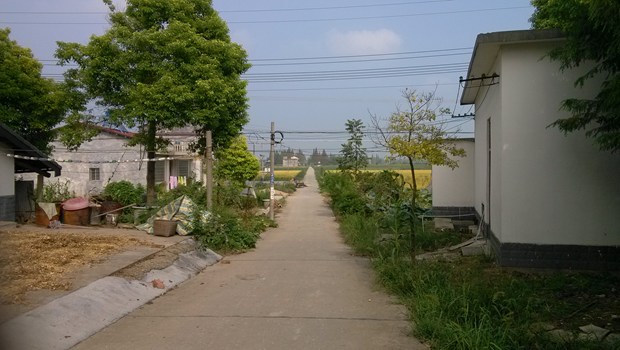
Water:
Mr. Cheng says :- "Nan County has plenty of water. We have many lakes and rivers and we don't have many factories here so the water is not a problem. We use groundwater for drinking. You can see some metal pots (storage tanks) on the roofs. They are the water towers. Western China doesn’t have enough groundwater to use, so there they have to build many cisterns to save the rain water."
水:
程先生说:“南县水资源丰富。当地有许多湖泊河流,工厂不多,所以水不是一个问题。我们饮用的是地下水。你能在屋顶上看到一些储水罐,那些是水塔。中国西部的地下水不足,人们不得不安装水池来储存雨水。”
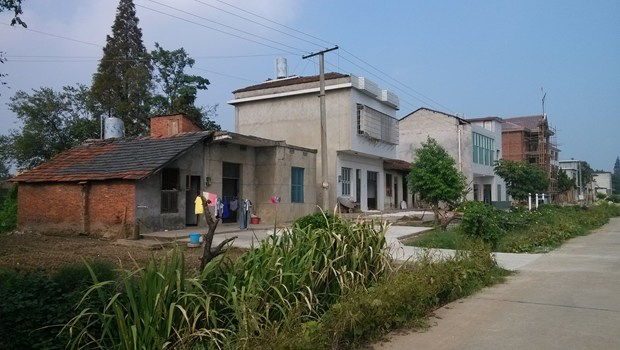
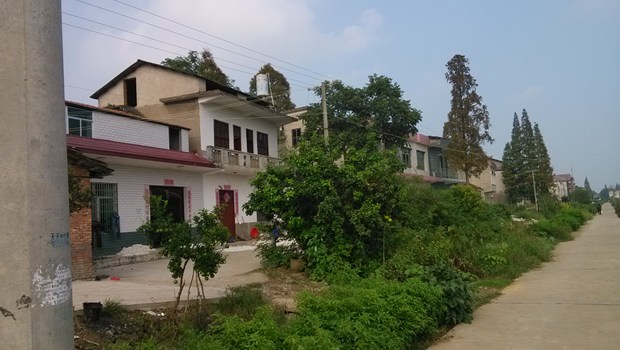

Income:
"All land in China belongs to the government but every adult can rent a land for which one should be a registered permanent resident and farmer by profession. You have to pay the agriculture taxes and the rent. In January 2006 agriculture tax was abolished. Now the farmers can get subsidy from government. However the income from farming is not high and the youth doesn't like the hard work that farming requires, so the present day children are migrating to the cities in search of better life."
收入:
“所有土地归政府所有,但是农民可以租地耕种。你必须得交农业税和租金。2006年1月,农业税被废除。如今,农民可以从政府那里获得补贴。饶恩荣,种田的收入并不高,年轻人并不愿意辛苦劳作,所以他们进城追求更美好的生活。”
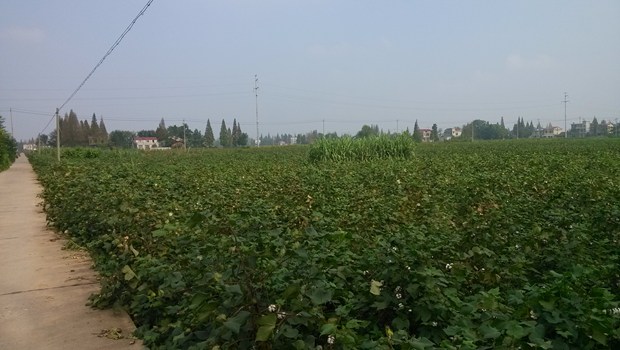

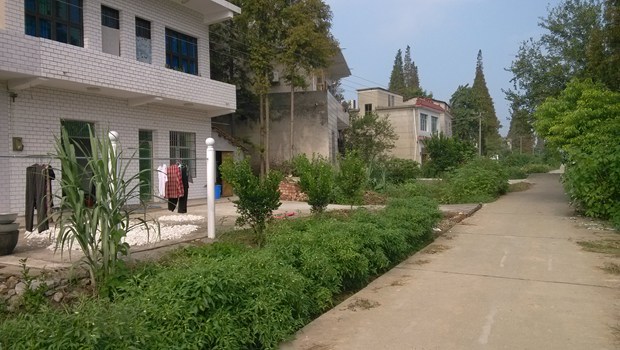
[The plots of lands which these farmers work on are small as I see from the pictures]
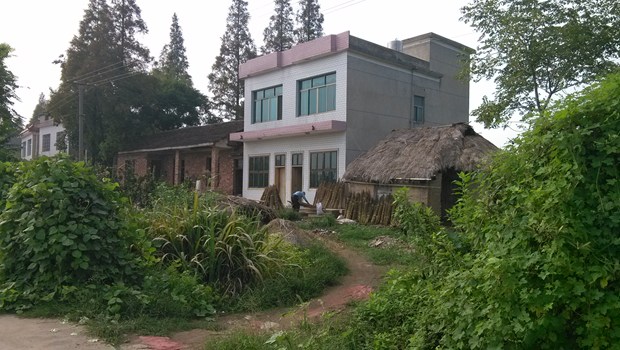
The responsibility of agriculture production thus reverted back to the individual households. The households are now given the quotas of crop output which they have to provide to the "collective units" in return for the tools, animals, seeds, fertilizers etc. The households get the farmlands from their units on lease but they are free to use it the way they want, long as they meet their assigned quotas.
因此,农业生产的责任又重归家庭。每户家庭必须交公粮,以换取工具、种子、化肥等。家庭承包下农田,他们就可以自由支配,只要满足指定的配额即可。
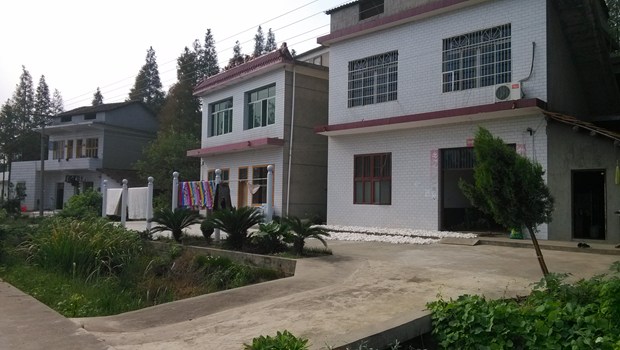
If such land reforms could be implemented in India then ninety percent of the court cases including land disputes and related murders would get solved and many judges and the lawyers would become jobless. Moreover there would be no instances of the land grabs by the mighty and the influential by force or in quid pro quo deals. While the rich own acres of land in India and enjoy all the tax exemptions and the subsidies extended to the agriculture sectors, the poor can’t even make both ends meet. On top of that their land holdings continue to reduce because of successive divisions among the siblings.
如果印度实施这样的土地改革,那么90%的诉讼案件,包括土地纠纷和与之相关的谋杀案,将会获得解决,许多法官和律师将失业。更重要地是,不再会出现强权攫取土地的事件。在印度,富人坐拥良田数公顷,享受免税和农业补贴,穷人却难以维持生计。另外,随着兄弟依次分田,他们的土地在持续减少。
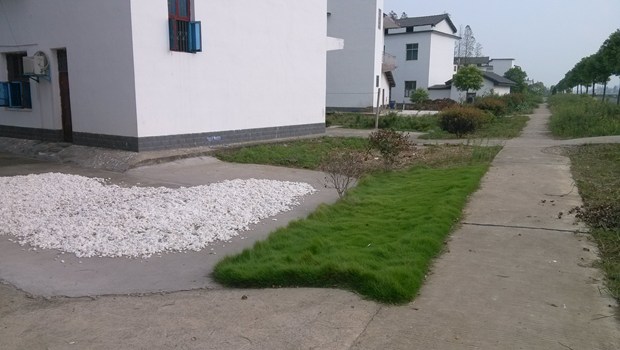
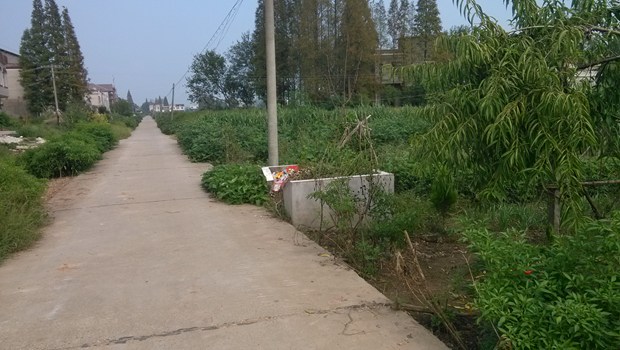
此文由 三泰虎 编辑,未经允许不得转载!:首页 > 在华印度人 » Navneet::湖南南县农村

 Navneet: 云南探秘--第三部分
Navneet: 云南探秘--第三部分 Navneet: 身处香格里拉的中心
Navneet: 身处香格里拉的中心 Navneet: 云南探秘, 第一部分
Navneet: 云南探秘, 第一部分 Navneet: 湖南省会长沙,第二部分
Navneet: 湖南省会长沙,第二部分 Navneet: 回忆在中国生活的日子, 租一套公寓
Navneet: 回忆在中国生活的日子, 租一套公寓 Navneet: 回忆在中国生活的日子
Navneet: 回忆在中国生活的日子 Navneet:当今中国高速发展,将世界远远甩在身后
Navneet:当今中国高速发展,将世界远远甩在身后 Navneet: 高港记事...9
Navneet: 高港记事...9